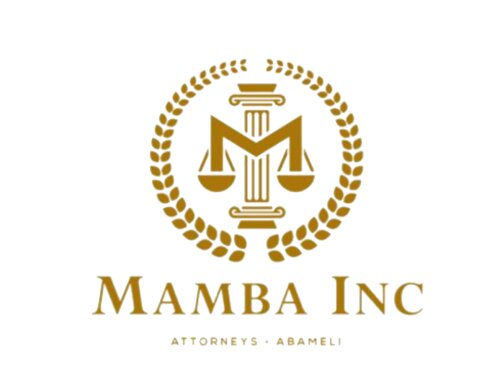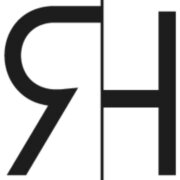Best Sanctions & Export Controls Lawyers in Centurion
Share your needs with us, get contacted by law firms.
Free. Takes 2 min.
List of the best lawyers in Centurion, South Africa
About Sanctions & Export Controls Law in Centurion, South Africa
Sanctions and export controls law in Centurion, South Africa, refers to the legal framework regulating the movement of goods, technology, and services across international borders. These laws help ensure that national security is protected, international obligations are met, and trade activities align with South Africa's foreign policy. Centurion, located in the heart of Gauteng Province and close to government and diplomatic offices in Pretoria, is a hub for businesses that may import or export goods and services, making knowledge of these laws crucial. Sanctions may be imposed to comply with United Nations Security Council resolutions or as a part of South Africa’s own economic or political policies. Export controls regulate what can be shipped abroad, especially with regard to sensitive technologies, weapons, dual-use goods, and controlled items.
Why You May Need a Lawyer
Navigating sanctions and export controls law can be complex and carries serious repercussions if not handled correctly. You may need a lawyer specializing in this area for reasons such as:
- If your business imports or exports goods and needs to understand compliance with local and international regulations.
- If you receive a notification from customs or another government authority about a potential breach of export control or sanctions laws.
- If you are part of a multinational business or supply chain that operates in countries subject to international sanctions.
- If you need advice on applying for export licenses or permits for dual-use goods or technology.
- If you are concerned about penalties, seizures, or reputational damage caused by non-compliance.
- If you are facing criminal or administrative proceedings related to suspected breaches in export controls or sanctions compliance.
Local Laws Overview
South Africa has a structured legal framework for sanctions and export controls. The most relevant laws and regulations include the Non-Proliferation of Weapons of Mass Destruction Act, the Regulation of Foreign Military Assistance Act, the National Conventional Arms Control Act, and various customs and excise laws. The South African Revenue Service (SARS) handles the enforcement of these rules at ports and borders, while the Department of Trade, Industry and Competition (DTIC) and the National Conventional Arms Control Committee (NCACC) are responsible for the licensing and oversight of controlled exports. Internationally, South Africa generally complies with United Nations Security Council sanctions but may have its own autonomous sanctions under law. Local businesses must also monitor changes to global sanction lists and ensure compliance where required. Penalties for non-compliance can include fines, imprisonment, and seizure of goods.
Frequently Asked Questions
What are export controls?
Export controls are laws regulating the export of certain goods, technology, and data from South Africa to other countries. Their purpose is to prevent the proliferation of weapons, protect national security, and maintain international commitments.
What does it mean to be subject to sanctions?
Being subject to sanctions means a person, entity, or country is restricted from certain economic activities, such as trading, financial transactions, or access to goods and services, often due to political or security considerations.
How do I know if my goods are subject to export controls?
Your goods may be subject to export controls if they appear on control lists issued by South African authorities, especially if they are dual-use, sensitive, or military items. You should consult the DTIC or seek legal advice.
What happens if I violate export control regulations?
Violations can lead to administrative penalties, criminal prosecution, heavy fines, imprisonment, and the loss or seizure of the goods involved. It can also damage your or your company’s reputation.
Are there exceptions or exemptions to export controls?
There are limited exemptions, such as for humanitarian purposes or if a specific export license is obtained. These are assessed on a case-by-case basis and generally require approval from the appropriate government authority.
How do international sanctions affect business in Centurion?
International sanctions may restrict whom your business can trade with, what products can be exported or imported, and may even freeze assets. Businesses in Centurion must ensure they do not engage with sanctioned entities or countries.
Do I need a license to export goods from South Africa?
For many controlled items, including military, dual-use, or technology products, you will need a license from the appropriate regulatory authority before export.
Which government bodies oversee sanctions and export controls?
The Department of Trade, Industry and Competition (DTIC), National Conventional Arms Control Committee (NCACC), and the South African Revenue Service (SARS) are the main regulatory and enforcement bodies.
Can individuals be personally liable for violations?
Yes, individuals such as company directors and managers can be personally liable for breaches of sanctions or export control laws, in addition to the corporate entity itself.
Where can I check current lists of sanctions and controlled goods?
Lists are published and updated by government agencies such as the DTIC and the United Nations. Legal advisers and trade consultants can also provide up-to-date information relevant to your business needs.
Additional Resources
Helpful resources and governmental bodies for anyone seeking advice or information on sanctions and export controls in Centurion, South Africa, include:
- Department of Trade, Industry and Competition (DTIC)
- South African Revenue Service (SARS)
- National Conventional Arms Control Committee (NCACC)
- Centre for Export Controls Excellence (industry association)
- Chambers of Commerce for legal and regulatory updates
- United Nations Sanctions Committees
Next Steps
If you believe that sanctions or export controls might affect your business or personal activities in Centurion, South Africa, you should:
- Document all relevant transactions and communications related to imports and exports.
- Consult with a legal professional who specializes in this field to assess your current compliance status.
- Request a risk assessment or compliance audit of your business activities.
- Stay updated on the latest changes in local and international laws regarding sanctions and export controls.
- Apply for licenses or permits as required before exporting or importing controlled items.
- If already facing an investigation or enforcement action, seek immediate legal assistance to review your rights and obligations.
Timely legal guidance can help you avoid severe penalties and ensure your business remains compliant with South African and international laws regarding sanctions and export controls.
Lawzana helps you find the best lawyers and law firms in Centurion through a curated and pre-screened list of qualified legal professionals. Our platform offers rankings and detailed profiles of attorneys and law firms, allowing you to compare based on practice areas, including Sanctions & Export Controls, experience, and client feedback.
Each profile includes a description of the firm's areas of practice, client reviews, team members and partners, year of establishment, spoken languages, office locations, contact information, social media presence, and any published articles or resources. Most firms on our platform speak English and are experienced in both local and international legal matters.
Get a quote from top-rated law firms in Centurion, South Africa — quickly, securely, and without unnecessary hassle.
Disclaimer:
The information provided on this page is for general informational purposes only and does not constitute legal advice. While we strive to ensure the accuracy and relevance of the content, legal information may change over time, and interpretations of the law can vary. You should always consult with a qualified legal professional for advice specific to your situation.
We disclaim all liability for actions taken or not taken based on the content of this page. If you believe any information is incorrect or outdated, please contact us, and we will review and update it where appropriate.















